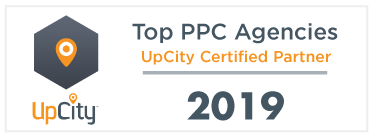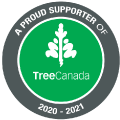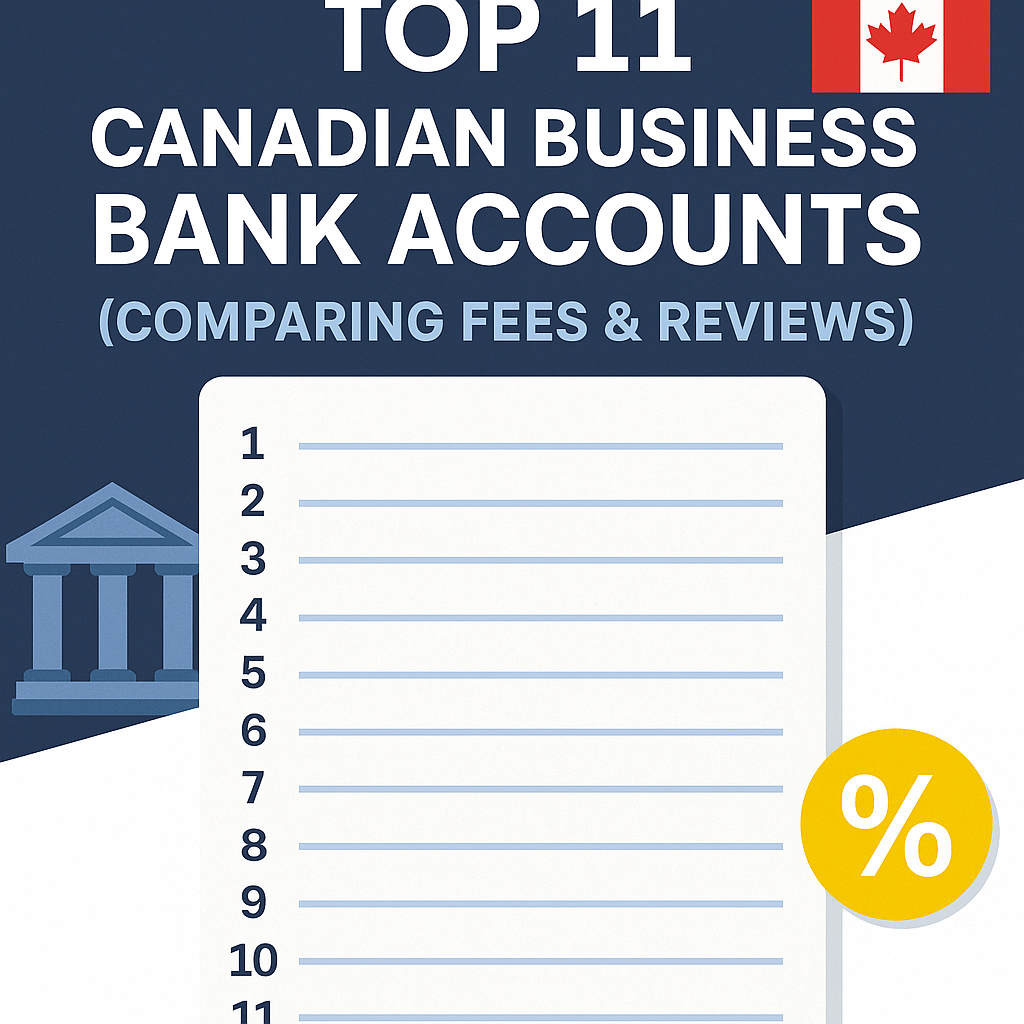GOOGLE ADS MANAGEMENT
ALL SERVICES- GRAPHIC DESIGN & BRANDING
➥ WEBSITE DESIGN TORONTO
➥ TORONTO LOGO DESIGN
➥ BROCHURE GRAPHIC DESIGN
➥ INFOGRAPHIC DESIGN
➥ BUSINESS CARD DESIGN
➥ PACKAGE DESIGN TORONTO
➥ ILLUSTRATION DESIGN
➥ ADVERTISING POSTER DESIGN
➥ BRANDING STRATEGY & SERVICES- ➤ VIEW ALL SERVICES
WEB DEVELOPMENT & SUPPORT
➥ CUSTOM WEB DESIGN TORONTO
➥ ECOMMERCE WEBSITE DESIGN TORONTO
➥ WEBSITE MAINTENANCE SERVICES
➥ SHOPIFY WEBSITE DESIGN
➥ SHOPIFY EXPERTS TORONTO
➥ WORDPRESS DEVELOPMENT
➥ WORDPRESS MAINTENANCE- ➤ VIEW ALL SERVICES
WEBSITE MARKETING & CONTENT
➥ SEO PACKAGES TORONTO
➥ TORONTO SOCIAL MEDIA AGENCY
➥ CONTENT MARKETING TORONTO
➥ PPC MANAGEMENT TORONTO
➥ AFFILIATE MARKETING CANADA
➥ STRATEGIC CONSULTATION- ➤ VIEW ALL SERVICES
ABOUT
RESOURCES- LET’S CHAT
Questions? Call us at
647-348-4995

GOOGLE ADS MANAGEMENT
ALL SERVICES- GRAPHIC DESIGN & BRANDING
➥ WEBSITE DESIGN TORONTO
➥ TORONTO LOGO DESIGN
➥ BROCHURE GRAPHIC DESIGN
➥ INFOGRAPHIC DESIGN
➥ BUSINESS CARD DESIGN
➥ PACKAGE DESIGN TORONTO
➥ ILLUSTRATION DESIGN
➥ ADVERTISING POSTER DESIGN
➥ BRANDING STRATEGY & SERVICES- ➤ VIEW ALL SERVICES
WEB DEVELOPMENT & SUPPORT
➥ CUSTOM WEB DESIGN TORONTO
➥ ECOMMERCE WEBSITE DESIGN TORONTO
➥ WEBSITE MAINTENANCE SERVICES
➥ SHOPIFY WEBSITE DESIGN
➥ SHOPIFY EXPERTS TORONTO
➥ WORDPRESS DEVELOPMENT
➥ WORDPRESS MAINTENANCE- ➤ VIEW ALL SERVICES
WEBSITE MARKETING & CONTENT
➥ SEO PACKAGES TORONTO
➥ TORONTO SOCIAL MEDIA AGENCY
➥ CONTENT MARKETING TORONTO
➥ PPC MANAGEMENT TORONTO
➥ AFFILIATE MARKETING CANADA
➥ STRATEGIC CONSULTATION- ➤ VIEW ALL SERVICES
ABOUT
RESOURCES- LET’S CHAT
Questions? Call us at
647-348-4995

GOOGLE ADS MANAGEMENT
ALL SERVICES- GRAPHIC DESIGN & BRANDING
➥ WEBSITE DESIGN TORONTO
➥ TORONTO LOGO DESIGN
➥ BROCHURE GRAPHIC DESIGN
➥ INFOGRAPHIC DESIGN
➥ BUSINESS CARD DESIGN
➥ PACKAGE DESIGN TORONTO
➥ ILLUSTRATION DESIGN
➥ ADVERTISING POSTER DESIGN
➥ BRANDING STRATEGY & SERVICES- ➤ VIEW ALL SERVICES
WEB DEVELOPMENT & SUPPORT
➥ CUSTOM WEB DESIGN TORONTO
➥ ECOMMERCE WEBSITE DESIGN TORONTO
➥ WEBSITE MAINTENANCE SERVICES
➥ SHOPIFY WEBSITE DESIGN
➥ SHOPIFY EXPERTS TORONTO
➥ WORDPRESS DEVELOPMENT
➥ WORDPRESS MAINTENANCE- ➤ VIEW ALL SERVICES
WEBSITE MARKETING & CONTENT
➥ SEO PACKAGES TORONTO
➥ TORONTO SOCIAL MEDIA AGENCY
➥ CONTENT MARKETING TORONTO
➥ PPC MANAGEMENT TORONTO
➥ AFFILIATE MARKETING CANADA
➥ STRATEGIC CONSULTATION- ➤ VIEW ALL SERVICES
ABOUT
RESOURCES- LET’S CHAT
Questions? Call us at
647-348-4995

GOOGLE ADS MANAGEMENT
ALL SERVICES- GRAPHIC DESIGN & BRANDING
➥ WEBSITE DESIGN TORONTO
➥ TORONTO LOGO DESIGN
➥ BROCHURE GRAPHIC DESIGN
➥ INFOGRAPHIC DESIGN
➥ BUSINESS CARD DESIGN
➥ PACKAGE DESIGN TORONTO
➥ ILLUSTRATION DESIGN
➥ ADVERTISING POSTER DESIGN
➥ BRANDING STRATEGY & SERVICES- ➤ VIEW ALL SERVICES
WEB DEVELOPMENT & SUPPORT
➥ CUSTOM WEB DESIGN TORONTO
➥ ECOMMERCE WEBSITE DESIGN TORONTO
➥ WEBSITE MAINTENANCE SERVICES
➥ SHOPIFY WEBSITE DESIGN
➥ SHOPIFY EXPERTS TORONTO
➥ WORDPRESS DEVELOPMENT
➥ WORDPRESS MAINTENANCE- ➤ VIEW ALL SERVICES
WEBSITE MARKETING & CONTENT
➥ SEO PACKAGES TORONTO
➥ TORONTO SOCIAL MEDIA AGENCY
➥ CONTENT MARKETING TORONTO
➥ PPC MANAGEMENT TORONTO
➥ AFFILIATE MARKETING CANADA
➥ STRATEGIC CONSULTATION- ➤ VIEW ALL SERVICES
ABOUT
RESOURCES- LET’S CHAT
Questions? Call us at
647-348-4995
![]()
![]()
![]()

- November 25, 2019
-
 Jack Choros
Jack Choros
Whether you’re a digital marketer looking to leverage the expertise and scalability of a digital marketing agency or a bar owner looking to drive more foot traffic, being aware of the latest SEO tips for bars is crucial (we’re assuming it’s crucial to you if you’re reading this article). So here, we’ll countdown the top tips. Most of the tips we’ll share here apply to any given niche. That said, obviously the bar industry has its own nuances and the reasons people go to a bar are different from the reasons why they make little flower shop or chiropractor. We’ll explore how some of those differences make applying SEO tips to the bar scene different as well. Let’s get started.
Develop a Clearly Defined SEO Strategy
Stacking the best of SEO tips for bars together without having a well-coordinated strategy isn’t going to work in your favour. In most local areas is just too much competition out there. Proper search engine optimization requires careful planning in advance of implementing anything.
All bar owners can logically assume that most of the customers that come in to wine and dine at a given establishment will only travel so far to do so. Perhaps we can make an exception for fancier places that don’t have as many locations in any given market. That said, the first step in ranking a bar then is to clearly define the local area you’re targeting. No sense going any further than that of course.
Once you’ve done that, you want to develop clearly defined keywords to chase. You need some that involve the local city and towns you’re targeting, and you need to group them in three categories:
- General bar and restaurant-related terms.
- Specific or niche-related bar and restaurant terms.
- Branded terms specific to the name of your restaurant.
General Bar and Restaurant Terms
General bar and restaurant terms would be terms like “Toronto restaurant” or “Toronto bar” and other variations. This is fairly basic but don’t underestimate it. There are many variations of a local city term with a generic bar or restaurant term. Don’t believe it? Use Google’s keyword planner and try it for yourself.
Niche-Specific Bar and Restaurant Terms
Come up with all the unique features that your bar or restaurant offers. Those are the niche-specific terms you want to chase. Is your restaurant romantic? Is it especially for vegans? Is it a great place to watch sports? Is it more of a high-end/fancy place?
Ambience is one of the key reasons people go out to eat at all. Anybody can cook food at home, but the service and experience you get when you go out is what makes going out worthwhile. Again, you can use keyword tools to find many variations of these, but you’ve got to know what your niche is.
Terms Specific to Your Brand
Just because your restaurant has a unique name, doesn’t mean you should take for granted that all the traffic from those search terms goes straight to you. Competitors in your local area might capitalize on your lack of attention to detail. Remember, they too can target your keywords and your brand name. That’s not a violation of copyright laws. Especially if they are in the same niche as you, this can actually work very well. People are open to alternatives when they’re searching for a restaurant. If they really want a steakhouse, they might try a competitor. Make sure you write blog posts about your branded terms and also consider using pay-per-click advertising as a way to make sure you always show up when people are searching for your brand name.
Make Sure Your Local Citations Match and are Accurate
What are local citations? They are any mention of your business name, address, telephone number. This needs to be accurate not just so people can find you in contact you when they’re looking for you, but also because part of ranking a website in Google is getting links back to your website from authoritative websites. Big local directories like Yellow Pages, Yelp, Goldbook and niche specific directories are authoritative sites. They are an indication to Google that this business drives commerce and revenue.
Here’s the thing. If your name, address and telephone number are not listed in exactly the same format on every single website, Google doesn’t necessarily provide your website with all of the credit it deserves. Consistency is key. There are local citation services like Moz Local or Yext that help business owners take care of this across many websites without having to enter basic data in over and over again.
Get Ratings and Reviews
Getting ratings and reviews is one of the most important parts of marketing any local business online, but it’s especially important for restaurants and bars. Why? Because for whatever reason, these days people don’t want to go to a bar or restaurant unless they’ve read the reviews and they’re happy with them. They post pictures, put them on social media, talk about whether the meal was good or bad, talk about whether the service was good or bad, and if they had a really good experience, they tell all their friends.
And as they say, word of mouth is the strongest form of advertising. Make sure that you have a Google My Business listing. It’s an opportunity to share your name, address and phone number as we’ve discussed. It’s also a chance to get some feedback from your customers. It’s not just getting the reviews and trying to get as many five-star reviews as possible that matters. You also have to respond to reviews. Google My Business rewards engagement on both ends.
But of course it’s not just Googly My Business that matters when it comes to getting reviews. Again, niche-specific websites particular to the restaurant industry also matter. Yelp and Yellow Pages also collect reviews. Nowadays, people can also leave a review on a Facebook fan page. Those reviews may not help SEO rankings, but that Facebook page will rank in Google and the star review rating will show up next to the link.
Localize the Content You Make
Developing content that features wording or imagery that only people in the local area would know about or understand develops connections with people on a relatable level. Talk about local history, or the neighbourhood. This is a similar strategy to going after branded keywords in your advertising. You’re not taking anything for granted. Not assuming that just because your restaurant is in the local area that it’s in that people are going to show up. Find a way to connect to people and give them a sense of place. It may mean making content that’s not just good for search engines, but it does help branding and awareness.
On-Page SEO
Google Search Console is a great tool for helping you measure the performance and search traffic that your website gets from people searching online. You can fix issues and make your website as great as it can be partially thanks to using this tool. Need to make sure your website has a proper sitemap, a proper robot.txt file and you’ve got to set it up on the search console so you can look for errors. If you don’t know what any of this means, you need a local digital marketing service to help you plan a content strategy and optimize your on-site SEO.
When it comes to on-page SEO, it’s important to make sure you use keyword-specific URLs, title tags, meta descriptions, headings, page content and image attributes. Literally every piece of content that you put out has to have this in mind. But you don’t want a spammer keyword too many times, because Google catches that too. In general you want to mention your keyword enough to let Google know what you’re content is about, but not so much that it’s the only word you’re talking about. Google still likes conversational type of content that engages people, it’s not just all about pleasing an algorithm necessarily.
Use Schema
Schema is structured data. It is most often used to provide information about the following:
- Creative work
- Events
- Organizations
- People
- Places
- Products
When it comes to restaurants, Schema basically allows you to categorize specific properties related to your establishment that Google might want to crawl. The whole point of doing this is to give the user the not just the most information, but the most relevant information possible. This would include things like customer ratings and keywords. It basically enhances the way snippets in search results are displayed.

Implementing schema is very much a technical thing, and might prove difficult if you’re a bar owner trying to do this yourself. However, if you want to dabble in it or at least be able to talk about it with a local digital marketing agency, you can look up restaurant specific schema or use Google’s free Structured Markup Helper to learn more.
Why You Should Hire an Agency to do SEO for Your Bar
The basics of SEO involves things that every business owner should know about. Search engine optimization within the context of online marketing is simply an absolute must-know part of a broader marketing strategy. That said, it’s impossible to be an expert in restaurant or bar management and also master SEO.
Instead let the pros handle it. A good digital marketing agency in Toronto will have experience in your niche, understand your customer, provide you with graphics and design solutions that help brand you, and ultimately rank you in Google. They may even know some ninja tricks we haven’t covered in this article.
No matter what you decide to do though, at least now you understand the basics of how to market a bar using proper search engine optimization tips and strategies.
Photo by Carla Oliveira on Unsplash

Jack has been in the internet marketing space for 10 years. He enjoys writing and watching the Toronto Raptors.
RECENT POSTS
- 10 Small Business Loans & Financing Options in Ontario
- Top 8 Small Business Insurance Providers in Canada (2025)
- Top 11 Canadian Business Bank Accounts (Comparing Fees & Reviews)
- SCAM ALERT: How a Fake Google Ads Inquiry Nearly Got Us (And How to Protect Yourself)
- Google My Business: 9 Tips to Ensure Your GMB profile Stands Out in the Map Pack

Ready to chat about how Little Dragon Media can enhance your business?
Call us now at 647-348-4995 or

OUR AWARDS & CERTIFICATIONS






WHAT OUR CLIENTS ARE SAYING



Little Dragon Media's professionalism and commitment to delivering excellence are truly commendable. I highly recommend their services... Thank you for your stellar work!
- Delna Bharucha

Little Dragon Media worked on developing our logo and website. They did an absolutely AMAZING job on both projects. These guys ROCK and you won't be disappointed.
- Sonia Nutt

My team had a great experience working with Little Dragon Media. We will certainly engage with Little Dragon Media for any additional projects in the future. Highly recommend!
- Carly Rooney



- 682A St-Clair West Toronto, ON M6C 1B1
- (647)-348-4995
- info@littledragon.ca
MOST POPULAR SERVICES
RECENT POSTS
GET MORE CLIENTS
Don't let your competitors take over. We'll help you climb to the top and get more clients.



- 682A St-Clair West Toronto, ON M6C1B1
- (647)-348-4995
- info@littledragon.ca
MOST POPULAR SERVICES
RECENT POSTS
GET MORE CLIENTS
Don't let your competitors take over. We'll help you climb to the top and get more clients.

Contact | Press Mentions | Privacy Policy | Terms of Service
© 2024 Little Dragon Media. All Rights Reserved.






